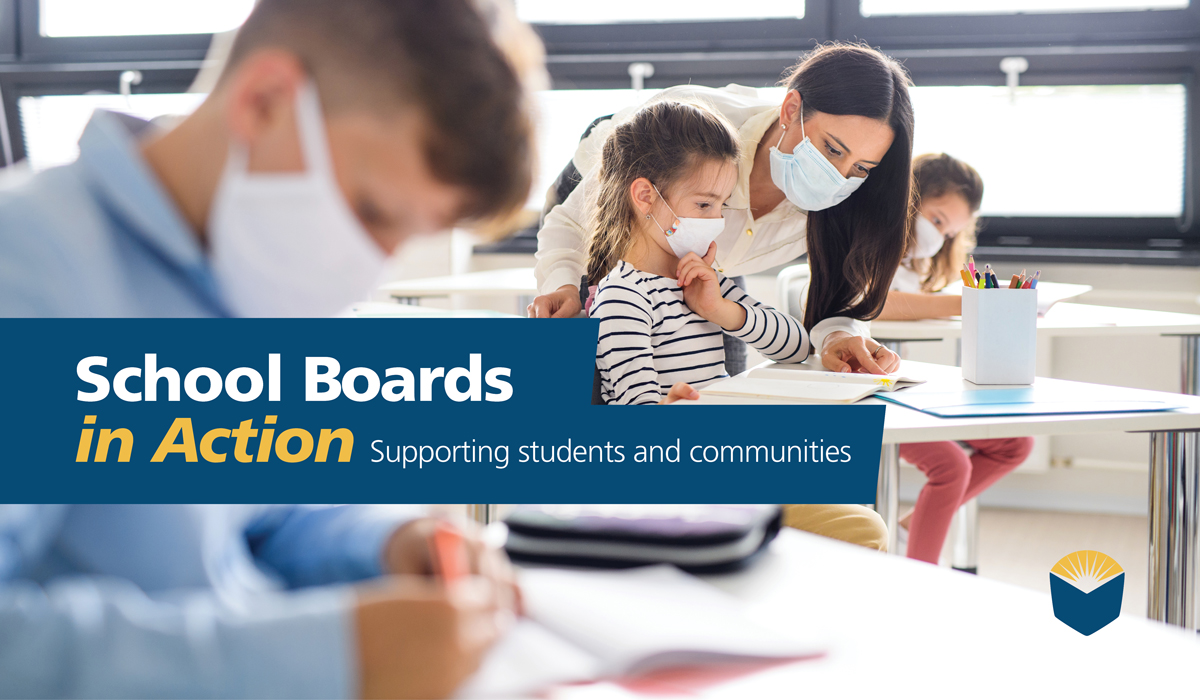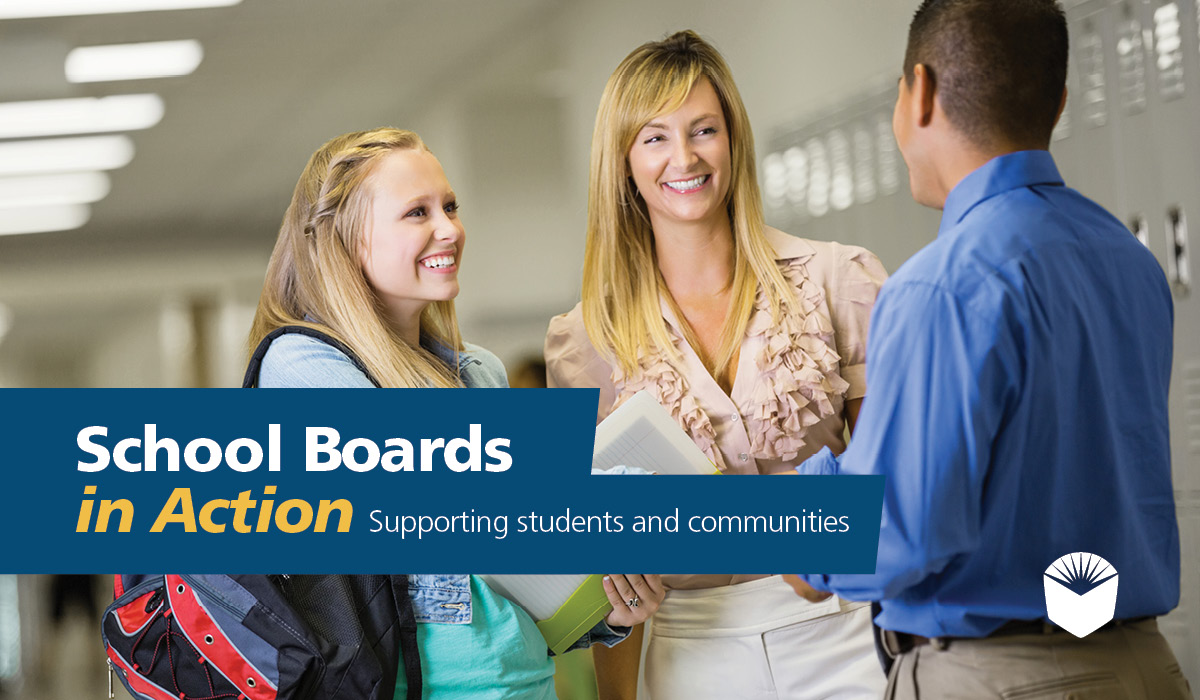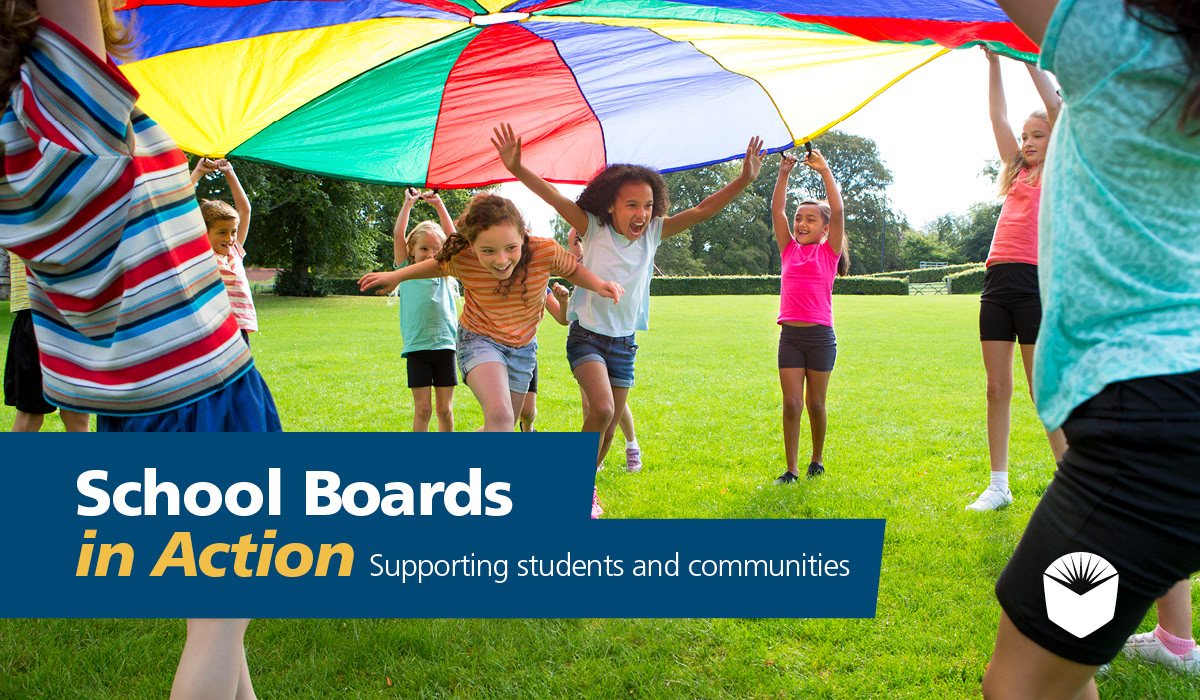In the midst of a global pandemic, local educational agency boards have continued working to support programs and initiatives that offer students the academic and social-emotional opportunities they need — no matter which mode of instruction they are in. CSBA’s 5 questions series gives board members a chance to share the accomplishments of their LEAs and their experiences during this challenging time in their own words.
Raymond Cheung, board member, Arcadia Unified School District
What is the most successful initiative your board has spearheaded during the pandemic?
I believe the most successful initiative was at the beginning of the school year when we made a complete commitment to providing the best distance learning possible. This really allowed the teachers to go all-in on this mode of teaching and to create the innovative lesson plans needed to engage their students as much as possible. Our chief technology officer along with our chief strategy and innovation officer worked hand-in-hand to train teachers on new digital tools as well as obtain and allocate any specialized programs and apps to the teachers that need them. We were also extremely fortunate that as a district we already had a one-to-one Chromebook standard. This allowed teachers and students to quickly get online without waiting for additional equipment purchases to come in. Families without high-speed internet access were also given district hotspots as well. It’s really been an all-hands-on-deck effort and a testament to our dedication to provide the best education possible to all students wherever and however that takes place.
What has been your board’s biggest challenge during the pandemic and how are you working to overcome it?
One of the biggest challenges we faced and continue to face is keeping track of the ever-changing public health orders and guidance. It’s difficult to know where you are going when the map seems to change on a daily or hourly basis sometimes. This kind of uncertainty in already uncertain times can cause a lot of stress even to the most resilient individuals. Our response to this was to tack upwind and provide as much certainty and consistency as possible for our students. Events like Valentine’s Day parties, theater productions and dance performances all have continued — just in new forms. Continuing traditions are important so big events like the 100th day of school for our youngest learners were still celebrated. As we prepare to reopen campuses to in-person learning, continuing to provide that sense of consistency and maintaining traditions will hopefully help provide a stable bridge back to normalcy.
What is the biggest misconception you’ve heard about school boards/education during the pandemic?
I think one misconception is that education can only take place within the four walls of a classroom. Yes, in-person teaching and learning is the gold standard and there are many drawbacks to distance learning, but there are benefits as well. There are many things that students have been able to learn or do in a year of pandemic-induced distance learning that they otherwise would probably not have a chance to do. One counterintuitive example is that many students have been able to go on more field trips than they would normally. Of course, they are virtual field trips, but they are often live streamed on location and interactive with a guide or docent. Best of all, classes can travel all over the world with no long bus rides or expensive airline tickets!
What are your hopes for the future of your district both short and long term?
Certainly, the events of last summer after George Floyd was killed, the substantial inequities of the pandemic impact and the attacks on Asian Americans in recent weeks have really highlighted the topic of equity, diversity and inclusion. We’ve been able to start a lot of good conversations from the school site to the board room, but I’m looking forward to having more formal discussions to look at what structural reforms may be necessary. Mental health and wellness is another area that we are all very interested in supporting. We’ve made significant investments in the last year from hiring full-time counselors to establishing wellness centers in order to provide direct student support. However, I think we can and should see what long term changes we can make to create an environment where these types of resources are not as needed as much.
How long have you been on the school board and why are you passionate about your work?
I’m a new board member having been elected in March 2020 and just began my term in July. In fact, due to the pandemic, I’ve primarily participated in virtual board meetings, which is definitely a strange start for a new board member. Participating in virtual board meetings has given me a lot of respect and empathy for the awkwardness of videoconferencing that teachers and students go through on a daily basis though. I am extremely passionate about public education because I believe we play a critical role in what Alexander Hamilton called the “grand experiment” of American democracy. The success or failure of that experiment depends so much on what educators do to prepare the next generation to solve the problems that our generation could not. Our district purpose statement is “To challenge and inspire students to make a positive and profound impact on their world” — I’m beyond proud to support that mission.
Responses have been edited for clarity and length.





